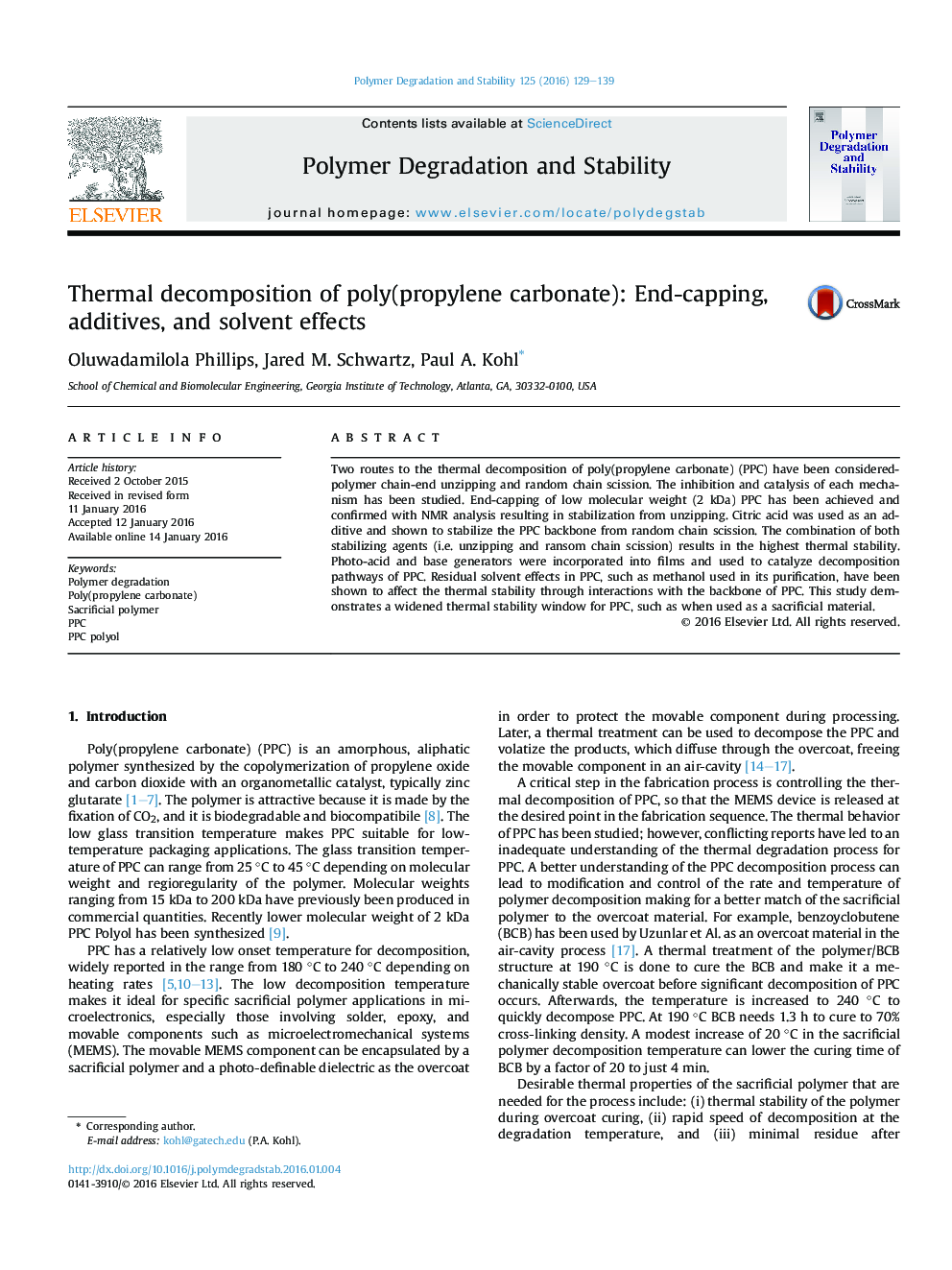| Article ID | Journal | Published Year | Pages | File Type |
|---|---|---|---|---|
| 5201153 | Polymer Degradation and Stability | 2016 | 11 Pages |
Abstract
Two routes to the thermal decomposition of poly(propylene carbonate) (PPC) have been considered-polymer chain-end unzipping and random chain scission. The inhibition and catalysis of each mechanism has been studied. End-capping of low molecular weight (2Â kDa) PPC has been achieved and confirmed with NMR analysis resulting in stabilization from unzipping. Citric acid was used as an additive and shown to stabilize the PPC backbone from random chain scission. The combination of both stabilizing agents (i.e. unzipping and ransom chain scission) results in the highest thermal stability. Photo-acid and base generators were incorporated into films and used to catalyze decomposition pathways of PPC. Residual solvent effects in PPC, such as methanol used in its purification, have been shown to affect the thermal stability through interactions with the backbone of PPC. This study demonstrates a widened thermal stability window for PPC, such as when used as a sacrificial material.
Related Topics
Physical Sciences and Engineering
Chemistry
Organic Chemistry
Authors
Oluwadamilola Phillips, Jared M. Schwartz, Paul A. Kohl,
